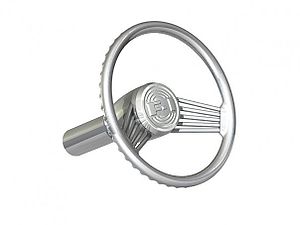
Among the many parts and components of your vehicle, the steering wheel is probably one of the most important. The steering wheel gives you direction and gets you from Point A to Point B. When the steering wheel ceases to function, you may not only get very far but you may also face danger on the road. So it’s important to detect problems in their early stages. You can often find out more about the steering wheel’s condition by the noises it produces. Click here and read on for finding out more on what certain steering wheel noises can mean.
General Tips
To assess the condition, you should first get behind the wheel. Turn the key in the ignition. Turn the steering wheel and listen for the noise to come up. It may emit a sound when you’re starting to turn the wheel, when you’ve turned the wheel completely, both times, or at all times. If you don’t hear a noise when it’s stationary, take the car out of the garage and drive it around, steering. Listen for any sounds then. You should determine what kind of noise it’s making so you can report it to the mechanic. See if it’s creaking, grinding, squealing, groaning, whining, screeching, or clunking along.
Creaking in Power Steering
Sometimes when you have power steering, your wheel will make an unnatural creaking noise. Don’t ignore this; your car requires attention. Your first task is to look at the reservoir of the power steering system. Unscrew the cap and look at the dipstick underneath to identify fluid levels. For levels below the minimum, put in more power steering fluid. Do not perform this task under any other circumstances. Note: The fluid does not empty so it’s rare to have to do this. Yet if you’re replacing it more than twice a year, this may indicate you need a mechanic’s care before you have to pay a lot of money for pump replacement. If you notice that the wheel creaks when you turn it completely to one side, the power steering belt should be inspected by a mechanic. Replacement is frequently needed for old parts; newer belts simply need tightening or another adjustment.
Grinding
The grinding noise is also something not to be trifled with. Again, the source of the issue may be low levels of power steering fluid. Maybe there is air trapped in the power steering system due to recent repairs or leaking. Perhaps the power steering belt is loose or worn.
The problem may not relate to power steering. If your wheel bearings are worn, the steering wheel may grind when the car is in motion. You should check out the wheel bearings immediately and replace them. Results of failure may include the loss of the whole wheel or loss of control in steering. Keep in mind that worn bearings are rare. The tie rod ends and other steering parts may be worn and cause the grinding. CV joints and brake rotors can be worn and will cause the grinding when the car moves.